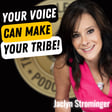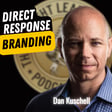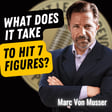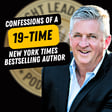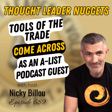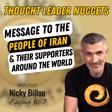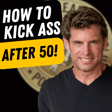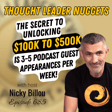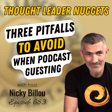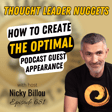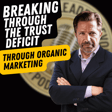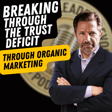
EP674: AJ Rice - Confessions Of An Early MAHA/MAGA Backer
“Any type of creativity involves some destruction. It does. So it’s a two-step forward, a one-step back situation.”
Disruption isn’t just a tactic—it’s a way of life for those who refuse to take the conventional route. This episode unpacks the messy, nonlinear path to building a meaningful business and career, showing that embracing creative chaos can fuel authentic leadership and entrepreneurial success. The key insight: true innovation doesn’t wear a uniform, and it certainly doesn’t follow the rules.
AJ Rice shares how a passion for literature and culture collided with a post-9/11 political awakening, launching him from grad school to the media world to eventually helming a powerhouse PR firm. He breaks down how backing Trump early wasn’t just a business decision—it was about backing authenticity, independence, and disruption. And now, as a bridge between MAGA insiders and RFK Jr.’s team, he lives at the crossroads of politics, publishing, and pop culture.
AJ is the CEO of Publius PR and a bestselling author of The Woking Dead and The White Privilege Album. Known as a behind-the-scenes architect of conservative media influence, AJ has worked with names like Laura Ingraham, Donald Trump Jr., and RFK Jr. His firm represents voices across politics, medicine, and culture, making him one of the most connected men in the world of populist PR.
Expert action steps:
- Accept the non-linear path. Success rarely follows a straight line. Embrace setbacks and failures as part of the creative and entrepreneurial process, and be ready to make trade-offs between different priorities like career, family, and financial goals.
- Earn your way up. Don’t try to shortcut your way to success. Build your foundation from the ground up so you understand every step of the journey and can navigate challenges with confidence.
- Write your own story. Take full ownership of your life and choices. There’s no fixed formula or image of what success should look like—what matters is authenticity and merit, not conformity.
Lean more & connect:
https://www.ajricepr.com/about
The Woking Dead – Author: AJ Rice
The White Privilege Album
Visit https://www.eCircleAcademy.com and book a success call with Nicky to take your practice to the next level.
